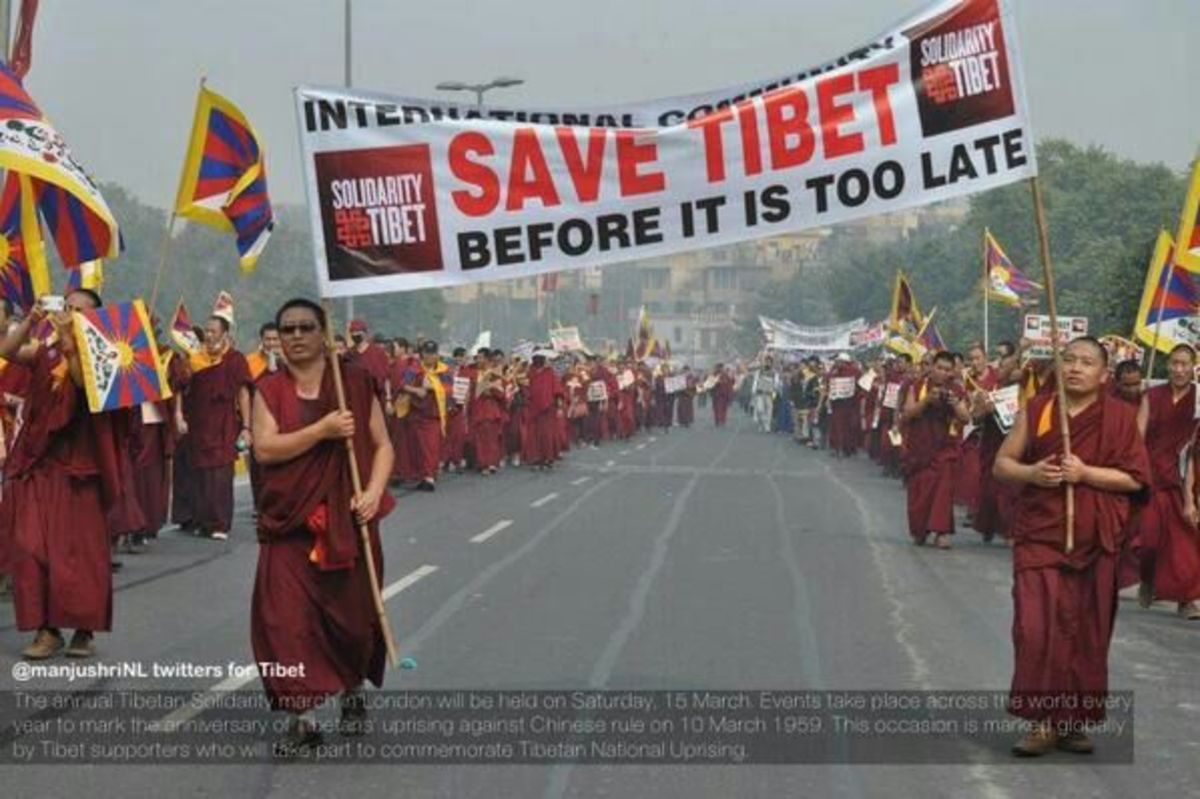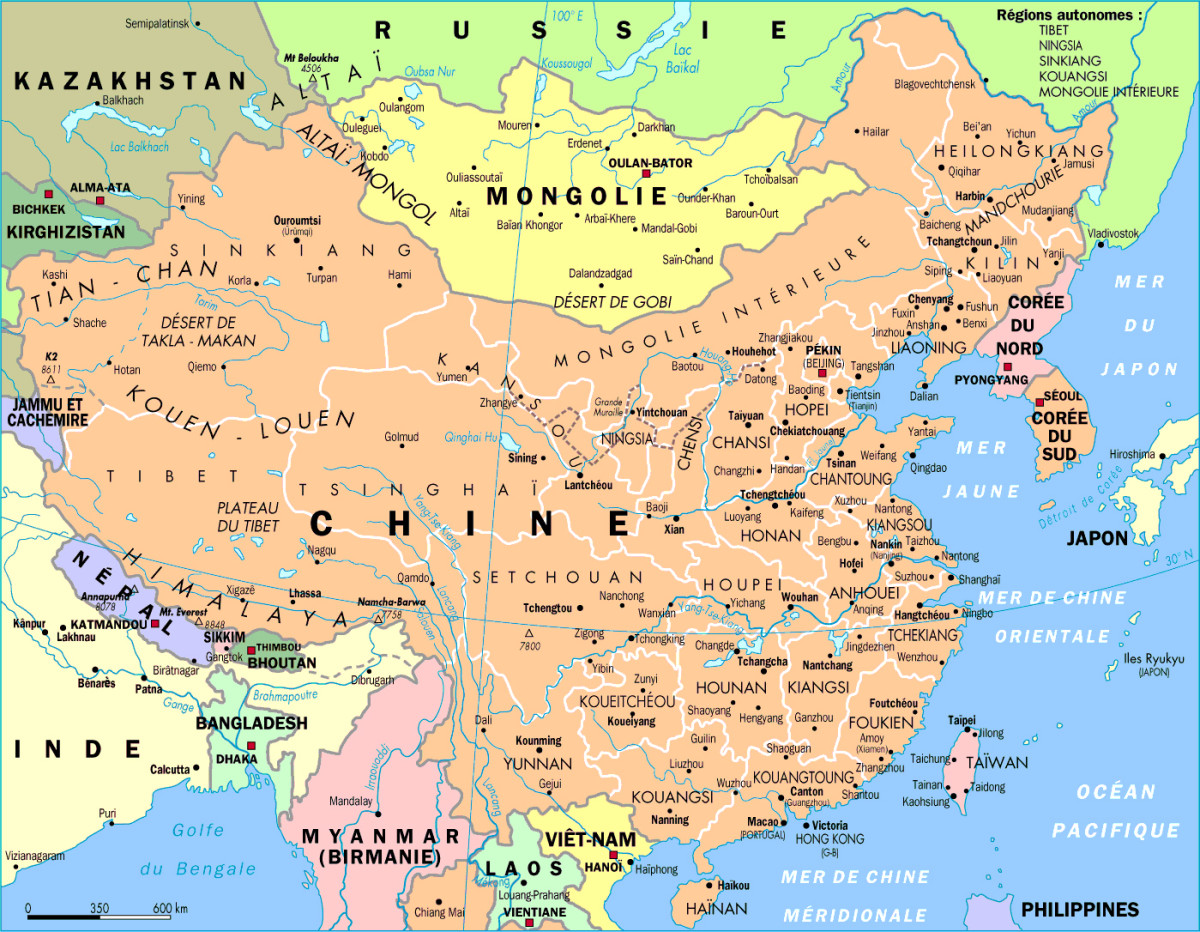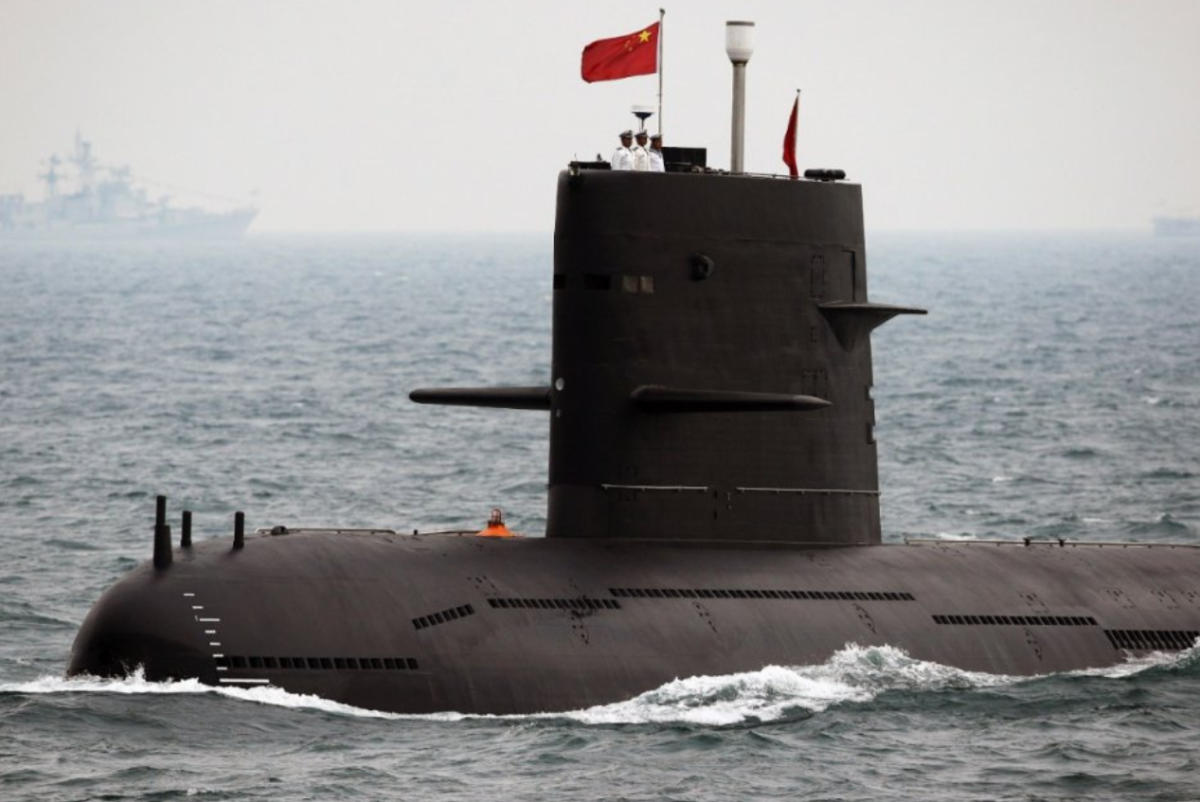TIBET- The Land of Snows and Sorrow
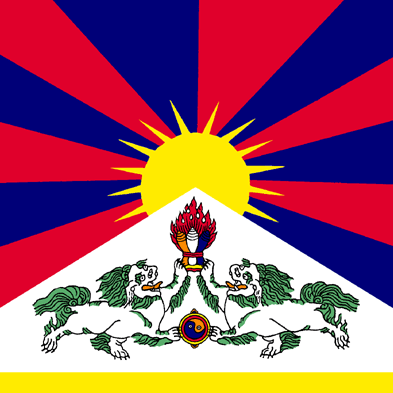
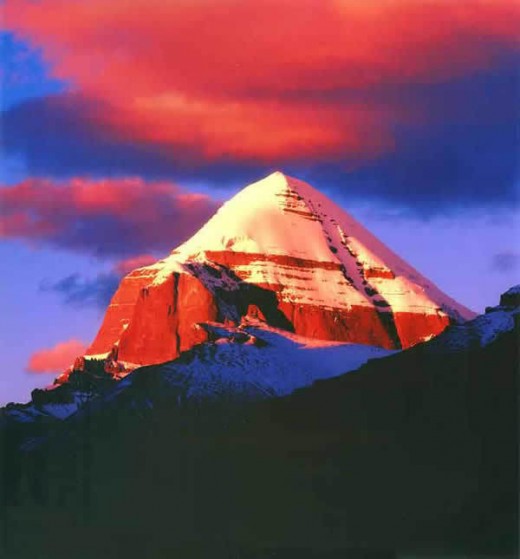
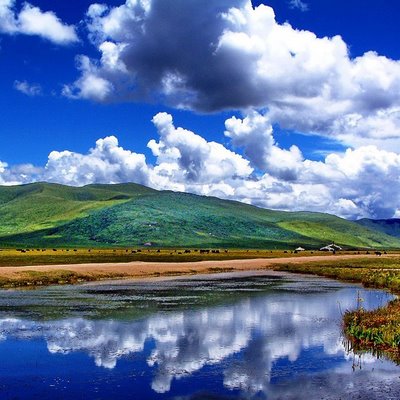
.
Tibet - mysterious land that I always wished to visit - because of it`s breathtaking nature and beautiful mountains every hiker and nature-lover dreams of , because of my interest in various world religions and Buddhism is certainly worth of exploration and, of course, because of great Tibetan people whose style of life for many centuries stayed rooted in simple tradition, spirituality and harmony with nature.
Although many people around the world have romantic picture of Tibet, as I used to have, this beautiful country and it`s people are actually very far from any romantic circumstances we like to imagine.
.
Since Tibet was in 1950. invaded and occupied for China, Tibet and Tibetans live in complete turmoil caused by China invasion that left the mark on their lives they never asked for.Tibetan government fled in exile in 1959 and since then, Tibetans (who stayed there and did not have chance to run away) are left in full isolation, their human rights are heavily violated, they are treated like second class citizens and live under full of control of China military and police (there is one military on every 20 Tibetans).
Chinese government and soldiers destroyed majority of Tibetan`s monasteries and cultural heritage and did their best to permanently change demographic make up of the country - in 50-ties there was more then 6 millions of Tibetans and almost none Chinese, today there is 5 millions of Tibetans and over 7,5 millions of Chinese people who migrated to Tibet by the order of Chinese government.
.
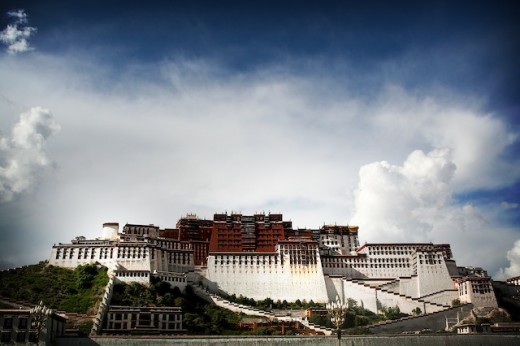
Let us take few steps back into the HISTORY OF TIBET
Tibet is known to be state as early as in 2nd century. In the 7th century, Tibet became super-power in Asia (together with China) thanks to the king Songtsän Gampo who founded Tibetan empire. China managed that mentioned king marries Chinese princess to keep the peace between China and Tibet (so they became allies), and she brought Buddhism to Tibet. But problems with China started already in 8th century who took over Tibet`s territories in central Asia, but luckily for Tibetans, Chinese army was defeated by Arabs, so Tibet gained control over it`s territory again and signed with China peace treaty in 822, that should last for 10.000 generations and should never be changed - the states approved each other borders and recognized each other`s sovereignty. China respected this treaty for many centuries.
In the 13th century, Mongolians (Genghis Khan) became the third "super-power" in Asia - but Tibetans were wise enough to influence Mongolia with Buddhism and offer them religious blessings in exchange for patronage and protection, so Buddhism became main religion in Mongolia, and deep friendship between Tibetans and Mongolians was established so they were very much tied together. Anyhow, China was not so lucky, Mongolians conquered China .
When in the 14th century Mongolian Empire became weak, Tibet broke political ties with Mongolia and regained it`s full independence again.
In the following centuries, Dalai Lamas were religiously influencing the both states- Mongolia and China what assured Tibet maximum of protection from the both ones.
On the beginning of 18th century, Mongolians decided to take over Tibet, but Manchur/Chinese emperor Kang-Xi (Manchurians were the nation that conquered China) saw in this attack possibility to gain dominance over Tibet and 4 times kicked out Mongolians from Tibet what helped him to gain political influence over Tibet.. Kang-Xi proclaimed Tibet as it`s protectorate , but Tibet kept majority of it`s independence and Tibet was never fully incorporated into this empire.
.
References: http://sites.google.com/site/legalmaterialsontibet/
http://tibet.dharmakara.net/tibethistory.html
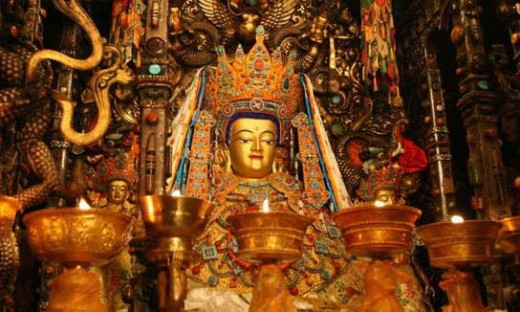
How China "liberated Tibet"
20th century in Tibet
Chinese influence became weak on the beginning of the 20th century due to their own inside political problems - fall of monarchy in 1911-1912. The new president of the Chinese Nationalist Republic, Yüan Shih-k’a, continued expansionist policy toward Tibet and welcomed the 13th Dalai Lama to join “the Motherland.” The 13th Dalai Lama refused and cut off all ties with China. He created a War Department to lead an armed rebellion against the Chinese. Due primarily to the chaotic situation in China, the Chinese troops soon surrendered. Chinese soldiers left Tibet in early 1913
Since then, Tibet enjoyed it`s full independence in practical sense (if we don`t count that Great Britain invaded it in 1904, but somehow Tibetans did not have much problems with British invasion, they became friends with them) .Of course, China could not forget the fact that it lost Tibet and Mongolia at that time, but for years could not do much about it. When the both world wars were over as well as civil wars and revolution in China and as soon as China became brand new communist country with fresh ideology, it`s temperament and fanatic leader Mao Zedong decided to bring back territory that China had when it was empire .
New ideologies, are often mightier then old ones - change in ideology brings new force to the country that already has imperialistic tendencies for centuries and also new excuses for grabbing somebody else`s territory - so only 1 year after communism fully won, in 1950, Mao sent his heavily armed army to "set Tibetans free from feudalistic slavery and Buddhist theocracy"...
Tibetans were not grateful because of his "well-minded" intentions (as well as they were not happy when any previous emperor was setting them free with help of army and weapons) and did their best to fight Chinese army, but as underarmed they could not succeed.
Although China conquered Tibet (second time in the history) they allowed that Tibetan government stays in Tibet and that young 14th Dalai Lama keeps it`s position as religious and political leader of Tibet - of course, China Government was that one who was really in charge .
In the following years, rebellion of Tibetans was imminent because Chinese army was continuously attacking Tibetan citizens (farmers and monks) in various provinces of Tibet, so Tibetans started to resist already in 1956. By 1958, as many as 80,000 people had joined the Tibetan resistance fighters. Alarmed, the Dalai Lama's government sent a delegation to Inner Tibet to try and negotiate an end to the fighting. But, the resistance fighers convinced the Dalai Lama`s delegates of the righteousness of the fight, and Lhasa's representatives soon joined in the resistance - Tibetan armed rebellion in Lhasa started in 1959, but Chinese army fought back on very cruel way, with heaviy, artillery that in 3 days they destroyed most importan parts of Lhasa and killed over 87 000 people and arrested and deported many other thousands of them. At that time, Dalai Lama and his government fled to India, later followed by other 80.000 citizens - all of them were escaping through the harsh Himalayan mountains walking for weeks to rich India. Of course, Chinese army continued with terros in the years to come so up till today approximately 1,2 million of Tibetans were killed by Chinese army, many more were tortured or deported to other Chinese provinces.
So much about " liberation of Tibet".
.
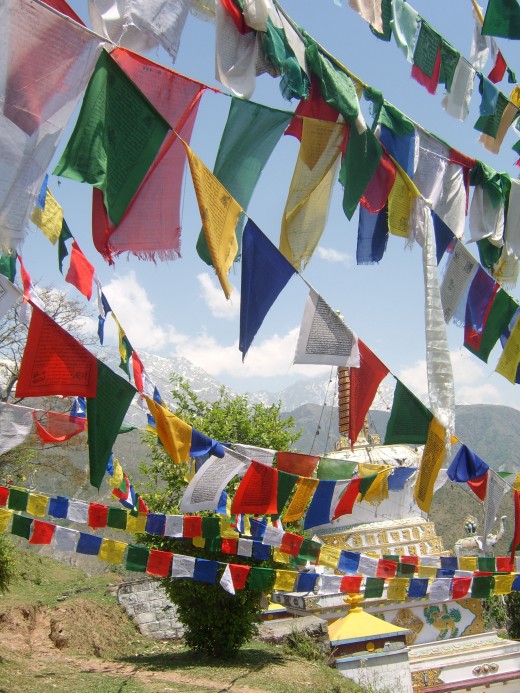
.
Chinese government today presents to the world false history of Tibet, claiming that Tibet was part of China for more then 1000 years, what is completely incorrect. They also present previous Tibetan society as highly non-human, what is far from truth. Chinese children learn the same false history in the schools, unfortunately pages of human history are often written by those ones who win some war.. The truth is completely different - actually very few states on this world can say that they were so lucky as Tibetans while being able to keep their independent status for so many centuries as Tibet was able, thanks to it`s political diplomacy and powerful religious and spiritual influence.
In the modern world, China denies that any state recognized Tibet, but by the international law that states that recognition can occur by explicit or implicit acts including treaties, negotiations, and diplomatic relations, Tibet was signed enough of such documents before invasion of China in 1950, that are proof of independence. Even Nepal has at that time Ambassador in Tibet, Tibet was issuing passports that were recognized by the other countries, etc.
So while world up till now did not fully recognize Tibet?
The answer is very simple - part of the world is still afraid of China, so many countries and many people think that is better to have China as friend instead of opposing it...business with China is also for some more interesting then human rights. The other part of the answer is in the fact that China government was using thousands of lies to cover their deeds, presented Tibetans as happy people who fully enjoy the prosperity as a part of China and their false marketing produced effects.
.
,
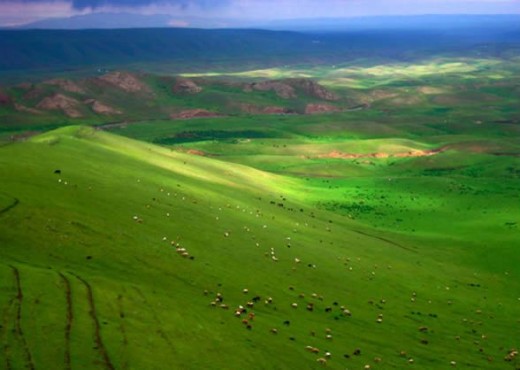
What about Tibet today?
Tibetans who live in Tibet are very much isolated from the rest of the world, thanks to the high level of control China implements, treated as second class citizens. Although China invested a lot of money to Tibet, it is not meant to be for benefit of "liberated" Tibetans: F.e they work for much less money compared to the same jobs performed by Chinese people.
Tibetans are also not allowed to travel outside China if they show any type of political disagreement with CCP. That ones who escape, are doing that secretly, over the dangerous Himalayan mountains (what means they need several weeks to pass them) - not everyone succeed, if they get caught by Chinese military, they get shoot or finish for many years in prison.
Please watch the following video recorded by Himalayan mountain climbers:
.
Human Rights for Tibetans in China? Combination of torture and brainwashing
While doing research for this Hub, I watched nearly hundred of video materials and read many written material - all the time I just could not stop to cry - so many suffering for people whose homeland is attacked is hardly possible to describe.
In Tibet today, there is no freedom of speech, no freedom of assembly, no freedom of press, no language freedom...
Majority of people who are still in Tibet give their best to for practice passive resistance, based on Buddhist's principle of non- harming the other being.
But...
Any sign or pro-independence protest or expressing any type of political dissatisfaction leads to the prison , even if someone has Dalai Lama photo can be enough to get prosecuted by the law.
- F.e for recording Tibetan freedom song one usually gets 5 years in prison,
- for demonstrating for independence 7-15 years,
- for passing pro-independence posters 7 years ...
- 9 years of prison is worth smuggling the list of prisoners outside of prison, etc.
In the prisons, various forms of torture techniques are employed as forms of punishment, which include:
- standing in the sun for long hours without any movement,
- making the prisoners run non-stop for long hours ,
- deprivation of food, water, and sleep,
- beating with iron rods, sticks, iron padlocks - often performed by group of soldiers
- the cuffing of hands and feet for many days,
- raping,
- confinement in a freezing room;
- setting guard dogs onto prisoners;
- the use of electric cattle prods,
- use of electric shocks while prisoner is in water ... etc.
List is very long. Do I need to mention that many die in the process of torture or later from malnutrition? When this happens, family needs to sign that person committed suicide.
In addition to torture, prisoners are required to denounce from their heart the Dalai Lama and Tibetan freedom, and to pledge their love for the Communist Party. If prisoner refuses to to that, torture continues.
Reference: http://www.tchrd.org/publications/topical_reports/drapchi_prison-2001/#insightIntoDrapchi
http://www.tchrd.org/publications/topical_reports/drapchi_prison-2001/
http://www.independent.co.uk/news/world/tibetan-tells-of-chinese-torture-1574940.html
http://www.freewebs.com/shadowclad17/issues.htm
https://www.phayul.com/news/article.aspx?id=10053&t=1&c=1
Please, don`t think that this does not happen to Chinese people as well. How practitioners of some spiritual movements (as controversial Falun Gong) are treated in China, you can see on this photos:
http://www.clearwisdom.net/emh/articles/2003/3/21/33576.html
Why torture?
Torture is not something what government or CCP explicitly orders. Problem is more complicated. There is political practise that did not change in China in last 3.000 years : central government gives orders to the local officials and puts them under the big pressure to comply with orders issued, while expecting quick results and without telling them how to implement them. If orders cannot be implemented, local officials are personally responsible and penalized by fees, or they face carrier problems etc. Result of such lack of sensitivity from central government is - enormous brutality of police, army and local officials who recognize torture as only way to implement orders that citizens cannot accept (because they are obviously wrong and too stupid to be implemented on normal way).
.
Today, many Chinese are afraid of Tibetan revenge, because not every Tibetan is peaceful lamb who wants to be manipulated on one way or another. Ironically, so called "liberation" that is forced upon Tibetans can be described as "Simple and highly effective methods how to create terrorists from peaceful people". China is very lucky only because Buddhism is very non-violent religion and majority of Tibetans are deeply devoted to the Buddhist`s principles, but in younger generations of Tibetans (inside Tibet and in exile) revolt is certainly rising up, and nobody can blame them for that.
Non-violence certainly does not mean that one should surrender to the violent one.
,
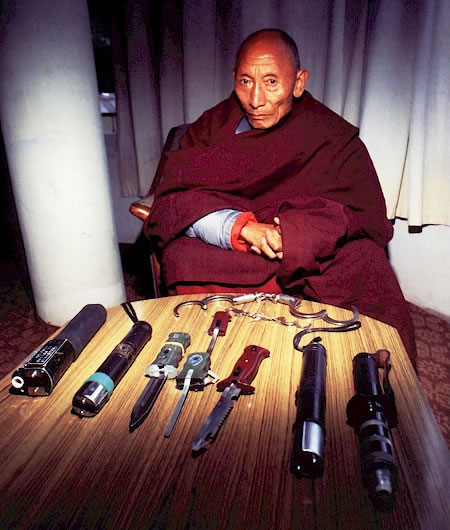
.
Palden Gyatso was a political prisoner for 33 years. He was persecuted for putting up a political poster and demonstrating against the Chinese occupation of Tibet. He endured years of torture, hard labor, and “political re-education”. What makes Palden unique is that he smuggled the torture devices used on him out of Tibet for the world to see— toothed thumbcuffs, knives, and electric batons. Palden Gyatso was released due to a letter writing campaign. Today, he continues to strive for freedom in his homeland.
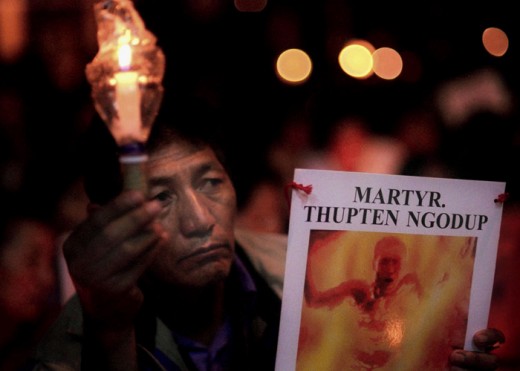
Thupten Ngodup is Tibetan patriot who set himself on fire in 1998 in Dharamsala in India, as a way of protest against Chinese invasion on Tibet. His pain for his country and people who suffer for decades in Tibet was too deep to be lived with - while not seeing another solution - he sacrificed his life so world would finally start to pay attention on truths about what is really going on in Tibet.
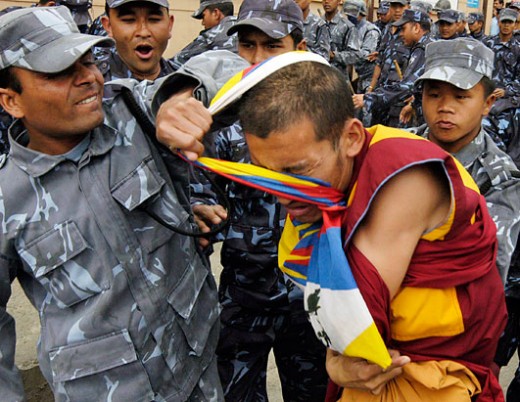
Chinese Imperialism and Roots of It`s Ideology
Many people try to blame socialism/communism for China`s imperialistic appetites - situation is far more complex then that. China, actually various nations that live on that territory (Hans, Mangjurians) - were imperialistic for many centuries, but monarchs in China were spiritually oriented - so whenever was needed, Tibetans were offering them strong religious support in replacement for political protection, so Tibet was able to stay free. When communists started to rule China, atheism became dominant, so Tibetans had nothing to offer to communist China in replacement for freedom or autonomy.
In pure socialistic/communist ideology there is no idea of imperialism, so for justifying their imperialistic behaviour, Chinese government and CCP (communist party) found inspiration in China`s imperialistic feudalistic past, and certainly in imperialism and colonialism of capitalistic countries in more modern world - this sick ideological mixture, falsely called "liberation, cannot make anybody happy on Tibet - nor Tibetans neither Chinese people who now live there.
With so many unhappy people it is not strange Chinese government is paranoid about Tibetans` wish for independence - giving up Tibet would mean that they have to admit they made mistake, what is not easy, because they intentionally rewrote history pages to justify what they`we done to Tibet. They would need to apologize because of imperialism and because of presenting to their citizens the false history. Without Tibet (that is big as western Europe) China would be much smaller country then now, and certainly much less politically stable. China consists of 56 nations, if they give freedom to Tibet, it is matter of time that other nations would start to fight for independence as well.
Because of big effort from Tibetan government in exile and Tibetans (in Tibet and in exile) who in 60 years of occupation did not give up their efforts to gain freedom and their voices are heard all around the globe, China government is in panic of the world finding out the truth about Tibet, as well as is afraid of Tibetans. Only fearful one can implement so brutal methods to suppress voice of the one whole nation, only fearful government can manipulate world and it`s own people with so many lies.
If Chinese government would not be afraid of Tibetans, they would already offer them referendum, so they could vote whether they want their independence or not.
Instead of that, they pressured Tibetan government in exile to change their politics and accepted negotiations with them only if there is no talk about Tibetan independence any more. Tibetan government in exile accepted that condition, understanding that as only choice to negotiate for more human rights and some autonomy for their people, but negotiations (there were only 2 of them in 50 years) did not lead nowhere up till now. Negotiations were obviously only fiction to present to the world generosity of China`s government, while, at the same time, plans were different and suppression over Tibetans continued, but some things do change:
.
The positive fact is that Chinese government started to react on pressure from people around the globe to set free some political prisoners, what was not case before, so it is very worth to act, sign petitions etc. http://www.freetibet.org Some things obviously do get better in spite of many obstacles.
In 2007 Chinese government ordered 100,000 Tibetan nomads to give up their lifestyle and move into the huge industrial towns along the Yellow River. The nomads live in much the same way as they did a thousand years ago herding yaks, spinning sheep wool and weaving yak hair for tents. For these people, this means losing their freedom they have high in the mountains, and sending them to live in crowded and polluted industrial cities, means death and lost of identity. This non-human act can be compared to the genocide. I don`t have any doubt that Chinese government presents that as "progress".
Demonstrations against occupation persist, were especially intensive in year 2008, when Olympic Games were in China.
Some truths about Tibet the best describes a poem written by remarkable lady Tsering Woser (who has Tibetan and Chinese roots and whose father was officer in Liberation Army of China, but started to seriously doubt about Chinese fairy-tales about liberation of Tibet). Tsering Woser is ex political prisoner and writes a blog on Chinese language about situation on Tibet. Blog is very popular by both - Chinese and Tibetan. She and her husband (who is Chinese), in spite of imprisonment they faced and suppression give their best to fight with words for truth about Tibet. This poem was written in 2008, after she visited her mother in Lhasa. 2008 was year when demonstrations against government were the most intensive.
.
A hurried farewell to Lhasa,
Where the fear is in your breathing, in the beating of your heart,
In the silence when you want to speak but don’t,
In the catch in your throat.
A hurried farewell to Lhasa,
Where constant fear has been wrought by legions with their guns,
By countless police with their guns,
By plainclothesmen beyond counting,
And still more by the colossal machinery of the State that stands behind them night and day;
But you mustn’t point a camera at them or you’ll get a gun pointed at you,
maybe hauled off into some corner and no one will know.
A hurried farewell to Lhasa,
Where the fear starts at the Potala and strengthens as you go east, through the Tibetans’ quarter.
Dreadful footsteps reverberate all round, but in daylight you won’t glimpse even their shadow;
They are like demons invisible by day, but the horror is worse, it could drive you mad.
A few times I have passed them and the cold weapons in their hands.
A hurried farewell to Lhasa:
The fear in Lhasa breaks my heart.
Got to write it down.
.
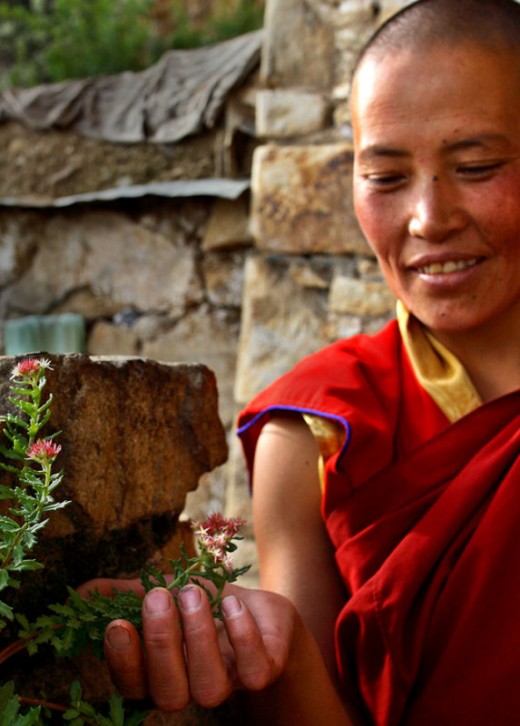
.
In the story of Tibet is so much pain that it is just heart breaking. It is story for many millions of written pages, not for only one.
I wish very much that Tibetans find freedom they pray and fight for, on whatever way they decide and that peace and truth finally prevails. After so many years, it is really time for new pages of history to be written, by power of ordinary people from both sides, and not by politicians who are deeply afraid of every shadow that could spoil their sick plans.
At the end of this Hub, here I share few pearls of truly amazing Tibetan music, performed by Tibetan music that is just breathtaking and lives energy of peace and hope for future, while listen it, your soul can fly through the mighty Himalayan mountains and green grasslands and touch the roof of this world. Somewhere there, among the winds and high hills, I also sent my prayers that goodness, peace and light finally prevail.
-
.
.
The song below, Tibetan Plateau, is very controversial - written by Korean Chinese Zhang Qianyi, who is also officer in Chinese army, but inspired by original Tibetan music and style of singing, that is very difficult for performance. Altough is written by member of Communist Party of China, text of the song is highly spiritual :
How far we can go back in time, How high we can go to approach the Divine
What if there is a song without lyrics , or love that would last forever?
Oh, I see the mountains, the mountains with endless horizon
Tibetan Plateau is my holyland, that my song always dignify.
Many nights we gaze upon the sky and dream about immortal life,
Who can always keep dreams in the mind? How far is my song being heard?
Oh, I see the mountains.......
Here you can listen it (half on Tibetan, half on Mandarin Chinese), performed by amazing Tibetan singer Sonam Wangmo, whose extraordinary voice is shaped in the freedom of grasslands of Tibet :
.

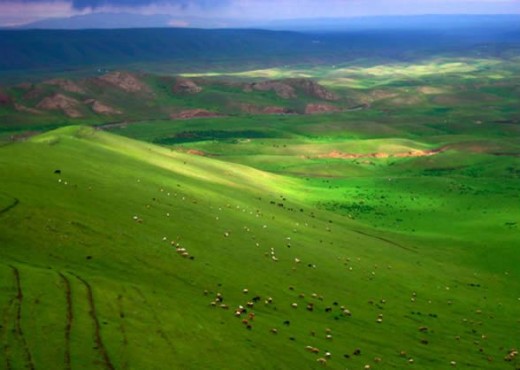
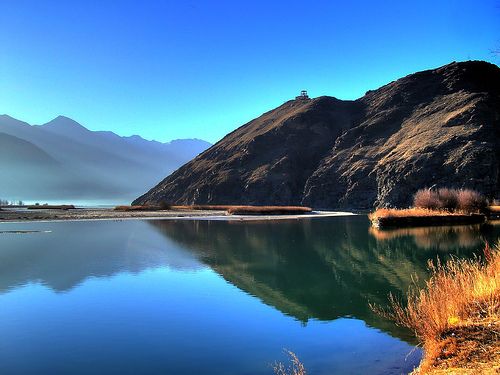
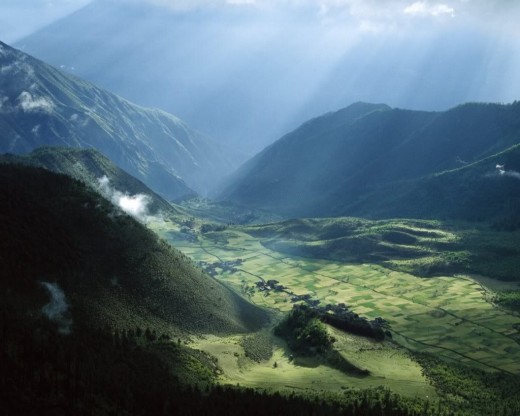
Sino-Tibetan Treaty, 821/823 A.D. ,
The Oldest Document about Sovereignity of Tibet, that was in 9th century recognized by CHINA
Translated from the inscription on the west face of the stone pillar at Lhasa
The great king of Tibet, the Divine Manifestation, the b Tsan-po and the great king of China, the Chinese ruler Hwang The, Nephew and Uncle, having consulted about the alliance of their dominions have made a great treaty and ratified the agreement. In order that it may never be changed, so that it may be celebrated in every age and every generation the terms of the agreement have been inscribed on a stone pillar.
Both Tibet and China shall keep the country and frontiers of which they are now in possession. The whole region to the east of that being the country of Great Tibet, from either side of that frontier there shall be no warfare, no hostile invasions, and no seizure of territory.
Between the two countries no smoke or dust shall appear. Not even a word of sudden alarm or of enmity shall be spoken and, from those who guard the frontier upwards, all shall live at ease without suspicion or fear, their land being their land and their bed their bed. Dwelling in peace they shall win the blessing of happiness for ten thousand generations. The sound of praise shall extend to every place reached by the sun and moon. And in order that this agreement establishing a great era when Tibetans shall be happy in Tibet and Chinese shall be happy in China shall never be changed, the Three Jewels, the body of saints, the sun and moon, planets and stars have been invoked as witnesses; its purport has been expounded in solemn words; the oath has been sworn with the sacrifice of animals; and the agreement has been solemnized.
The full text of treaty: http://tibetjustice.org/materials/treaties/treaties1.html
Some of my other Hubs:
- PEACE TO THE WORLD
Prayers are poetry of human souls, the way how we communicate with our own creative forces, which we can call Divine within. By doing that we are connected with our spiritual source, our Beginning and the End,... - WHY IS PEACE ALWAYS BETTER THEN WAR
18 years ago, when Croatia wanted to separate from Yugoslavia, war in my country started, and it lasted 4 years. Yugoslavian military forces, did not allow Croatia to separate (we were without weapons on... - DAYDREAMING ON THE CROW LAKE, Croatia, Dalmatia
My country is so beautiful that my hearth can only sing whenever I travel around Croatia. On Saturday I visited georgeous peacefull Crow Lake (Vrana Lake) which is situated in Dalmatia county , between towns... - MEMORIES OF MY PAST LIVES - Reincarnation & Immortal...
Fear from death is one of the worst human enemies - beliefs that this life is ultimate experience and only possibility for achieving all goals and fulfilling all desires create tremendous pressure on people...
- Tibet Through Chinese Eyes - 99.02
A Chinese perspective on Tibet - Students for a Free Tibet : Index
- The Official Website of the Central Tibetan Administration
Tibetan Government Official Website with news, Tibetan Newpapers and Magazines Online, multilingugal, offices introduction - China and Tibet | Human Rights Watch
- The Tragedy of the Panchen Lama
The Tragedy of the Panchen Lama - History of Tibet - Is Tibet Part of China?
Is Tibet part of China? History of the interactions between China and Tibet, including the unclear relationship between the two over time. Was Tibet really part of China before 1949, or was it an independent country? - Tibet Justice Center - Legal Materials on Tibet - Tibet - Proclamation Issued by His Holiness the Da
- Rangzen Means Independence
- The Berzin Archives The Buddhist Archives of Dr. Alexander Berzin Home Page
e-Books and teachings about Buddhist practice, the history of Buddhism and its interaction with other spiritual tradictions. Sutra teachings like the graded path (Lamrim) and mind training (Lojong) are covered, as are the tantric Vajrayana teachings, - Russian and Japanese Involvement with Pre-Communist Tibet: The Role of the Shambhala Legend

